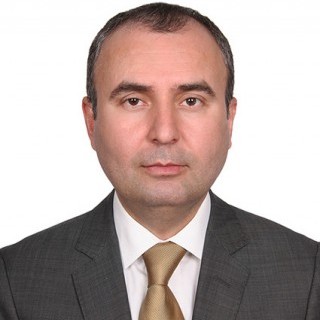Key events in EMEA next week
Significant rises in inflation are expected across emerging market economies next week, forcing some central banks to send more hawkish signals and begin their rate hike cycles
Russia: Higher FX interventions and faster inflation
The Russian Finance Ministry will likely announce an increase in FX purchases from US$4.5bn in September to US$4.9bn in October on the back of higher oil and gas prices. The latter has come into focus recently as a result of soaring gas prices in the EU, Russia’s customer. Natural gas accounts for around 15-20% of the fuel exports and the budget’s fuel revenues, and it is a part of the fiscal rule – i.e. extra gas revenues are to be saved in the sovereign fund. According to our estimates, the cut-off gas price implied by the fiscal rule is US$147/kcm, and this year the budget is looking to receive around US$5-7bn worth of gas revenues above the volumes planned earlier this year. The increase in the FX purchases in October is unlikely to upset the FX market given the strength in the non-fuel component of the current account. According to our estimates, the 3Q21 current account surplus may exceed US$30bn, while 4Q21 maybe north of US$20bn.
Inflation in Russia is likely to be confirmed at a very worrisome 7.3% year-on-year for September, following the shocking preliminary data reported for the last week of the month. The near-term CPI trajectory is now substantially above the Bank of Russia’s forecast range of 5.7-6.2% for the year-end, and thus we have to worsen our year-end outlook to 6.8% YoY. The final September data will give more insight into the origins of the 0.6 percentage point spike in the annual rate over the month, but we believe it will be a combination of pre-election social payments of RUB700bn, bad weather, the post-electoral release in the administrative price controls on socially-important goods, and the global inflation in agro commodity and freight rates.
The Bank of Russia initially downplayed the importance of the recent CPI print as ‘noisy’, which suggests that the monetary authorities are still uncertain if they should increase the key rate hike by 25 to 50 basis points at the upcoming meeting on 22 October, but for us the latter is becoming a base case scenario. A less likely decision to stick to the 25 bp step accompanied by hawkish signals is also possible, depending on how the Bank of Russia sees the Covid-19 related risks at the moment, with a new wave of infections materialising in September amid high mortality and still sluggish 33% vaccination rate.
Hungary: Jump in inflation as consumption picks up
Next week’s Hungarian calendar is going to be a busy one. We expect some improvement in retail sales in August, in line with the recent up-and-down pattern. In contrast, we probably won’t see a strong performance in industry as chip shortages forced carmakers into a lengthened summer shutdown period. With services booming, budget revenues picked up in our view, translating into a minor monthly surplus in the budget in September. The highlight of the week however is the September inflation reading. Last year provides a surprisingly low base on one-off factors in the core inflation basket. Thus, we expect a move above 4% YoY yet again in core inflation and as non-core elements are still adding to the price pressure, we see a jump in the headline CPI to 5.5% YoY.
Turkey: Upside risks to push up annual inflation figures
We expect annual inflation to further increase to 19.5% in September (1.2% on monthly basis) from 19.25% in August, impacted by higher energy prices and exchange rate developments, with risks tilted to the upside, while core inflation is likely to inch up to 16.9%.
Romania: Hawkish cycle to begin after an unchanged policy rate this week
We expect the National Bank of Romania to maintain its policy rate unchanged at 1.25% at the 5 October meeting. In our view, this will be the last meeting before the start of the hiking cycle, hence we expect a rather hawkish statement following the Board meeting. In fact, due to the significantly higher-than-estimated inflation on one hand and the political instability on the other (which by extent, dampens the fiscal consolidation), we assign a reasonable probability (25%) for the hiking cycle to start in October.
EMEA Economic Calendar

Download
Download article1 October 2021
Our view on next week’s key events This bundle contains {bundle_entries}{/bundle_entries} articlesThis publication has been prepared by ING solely for information purposes irrespective of a particular user's means, financial situation or investment objectives. The information does not constitute investment recommendation, and nor is it investment, legal or tax advice or an offer or solicitation to purchase or sell any financial instrument. Read more



